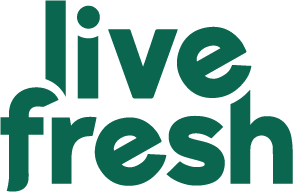Bei unseren aufgeführten Tipps spielen vor allem die Wahl der Lebensmittel sowie die Menge, die konsumiert wird, eine Rolle. Wichtig ist, dass Du nicht alle Regeln von heute auf morgen beherrschen willst, sondern jede Regel einzeln und Schritt für Schritt an Deinen persönlichen Organismus gewöhnst.
Highlights
- Gesunde Ernährung lässt sich mit 10 Tipps leicht in den Alltag integrieren: Dazu gehören achtsames Essen, gründliches Kauen, wenig verarbeitete Produkte, Vollkorn und Verzicht auf Weizenprodukte.
- Ein ausgewogenes Frühstück ist kein Muss, dafür aber ausreichend Wasser und frühes Abendessen.
- Fleisch und Fisch nur in Maßen und Desserts mit Bedacht konsumieren.
1. eating when feeling hungry
Only eat when you are really hungry. If you don't have an appetite for various reasons (e.g. flu), don't force yourself to eat, but listen to your body. You should also avoid "overeating" because it tastes so delicious.
2. take your time and chew thoroughly
Meals should always be eaten calmly and without rushing. It is therefore advisable to only take a few bites during a stressful day and - if time permits - to eat a main meal in peace and quiet. In any case, care should be taken to chew each bite carefully (30-40 times) before swallowing.
3. few or many meals a day?
That depends entirely on you, your possible complaints and preferences. If you have any problems with your blood sugar level, it is advisable to spread your meals over several small meals a day. Otherwise, however, it is up to you to decide on your own meal plan.
4. breakfast is not a MUST
Only eat breakfast if you are really hungry (tip 1). Many people don't feel the need to eat right after getting up. If you do feel hungry in the course of the morning, prepare a healthy snack at home so that you don't have to rush to the nearest bakery or even the vending machine in the canteen.
5. water to start the day
Water stimulates digestion and helps to quickly eliminate waste products that have accumulated during the night. So start the day with a glass of water. After about ten minutes you can then enjoy your freshly prepared breakfast or - as mentioned above - have it later.
6. dinner before 6 p.m.
The digestive power of the human organism decreases in the evening and is much lower at night than during the day. Eating a meal late in the evening or even shortly before going to bed puts a strain on your digestive system throughout the night and thus worsens the quality of your sleep.
7. meat and fish in moderation
It's no secret that meat contains a lot of protein and this is one of the (seemingly endless) reasons why many people often eat meat. However, for a healthy diet you should not eat meat more than twice a week.
Fish should also not be eaten more often than meat due to overfishing and pollution (heavy metals and other environmental toxins) of the oceans.
8. no dessert
Desserts and sweets usually consist of sugar and/or dairy products, which tend to be counterproductive for a healthy diet. If you still can't do without your beloved dessert, at least delay it a little. Don't eat your dessert directly after a main meal, but wait about 30 to 40 minutes. During this time, you will already feel fuller and you won't eat as much of your dessert as you would immediately after your main meal, which also makes it easier to digest the main course.
9. whole grain products
Whole grain foods such as whole grain bread, brown rice or whole grain pasta provide significantly more vitamins, fiber and minerals than the "conventional" products (white bread, white rice, pasta) that are widely available in our country. The ingredients in whole grain foods have an extremely positive effect on your intestinal health and therefore on your general well-being.
10. avoidance of wheat products
Countless people have problems with wheat products, but very rarely associate these complaints with wheat. Do something good for your body by choosing rye, oats, spelt or barley for your baked goods and pasta.
Das könnte dich auch interessieren

Dr. Ulrike Fischer
Nutritionist
Developed on a scientific basis by Dr. Ulrike Fischer, who holds a doctorate in nutritional science.
Bei unseren aufgeführten Tipps spielen vor allem die Wahl der Lebensmittel sowie die Menge, die konsumiert wird, eine Rolle. Wichtig ist, dass Du nicht alle Regeln von heute auf morgen beherrschen willst, sondern jede Regel einzeln und Schritt für Schritt an Deinen persönlichen Organismus gewöhnst.
Highlights
- Gesunde Ernährung lässt sich mit 10 Tipps leicht in den Alltag integrieren: Dazu gehören achtsames Essen, gründliches Kauen, wenig verarbeitete Produkte, Vollkorn und Verzicht auf Weizenprodukte.
- Ein ausgewogenes Frühstück ist kein Muss, dafür aber ausreichend Wasser und frühes Abendessen.
- Fleisch und Fisch nur in Maßen und Desserts mit Bedacht konsumieren.
Inhalt







